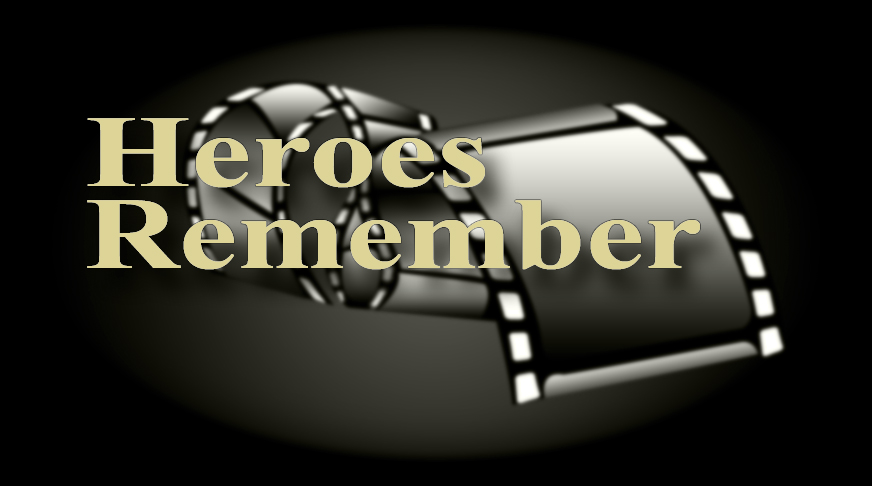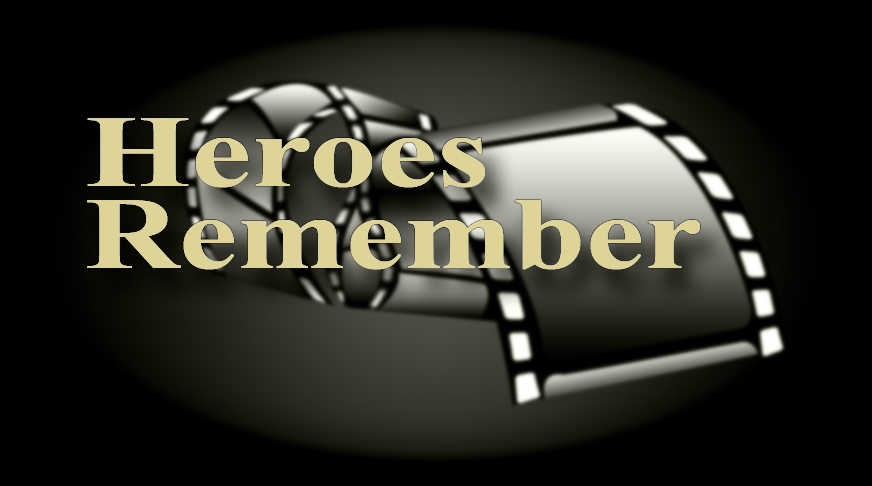Trench Warfare
Heroes Remember
Trench Warfare
Transcript
Trench Warfare
There was five Cape Bretoners in the Calgary's with me, Cyril
Holly from Glace Bay, Walter Hopkins, a big fella about six foot
five, now imagine him getting into a trench and that, and Joe
Gail (sp.), and a fella by the name of Ian MacDonald, they were
all from Cape Breton and I was the youngest fella among them and
they were all nice to me. Anyway, we got word that we were
going into the Hochwald so I remember going in there in the
afternoon and this Holly was next to me, Cyril Holly from Glace
Bay, and we got, we were on, it was a flat field, and the
Germans were up in the woods there, they were up on like a hill,
and I said to Cyril, we got near the centre of the field, had
been in action so much you have an idea what's coming. They let
us get to the centre of the field and we were going in
arrow-head formation and they opened up on us with machine guns
and right away he got a bullet through the flesh part of his
leg, so that wasn't bad so I said I didn't see any blood
squirting out because we carried a field dressing on the front
of our helmet and the back, so I said, "Are you all right?" So
we got to keep going. So we lost the officer on the way in, and
we lost a few men, so we got in there, the Sergeant and I were
together, well we had been in action quite a bit together and
him and I travelled together. Anyway, his nerves were going on
him, I knew that, so anyway we got dug in and just before dark
he looked up and he seen the paratroopers coming in head on and
him and I were in the slit trench on your left and, and anyway
there was a machine gone over here, I guess there was one on the
other side, I didn't know anything about it, but anyway, he
said, "I'm going back to radio for help." So I said, "For
heaven sake, don't leave me alone here. Now you come back." I
wasn't sure if he was coming back. So the major was back at
company headquarters where the radio was at, so I said, "For
heaven sake, try and make it back." So anyway, he never come
back and we were fighting, and fellows got out of the trench
like you'd see in the show, firing, you know, they lost. So I
said to this Corporal Sands, he was on my right, he was a big,
tall farmer, a nice man, I think he was twenty four years of
age. Anyway, I said, "Will you give me covering fire? I'm going
to try and knock this machine gun that's out on my left." So
anyway, he said, "Alright." So anyway, I crawled over, I, I just
forget the distance it was, they were firing away. I never took
my Sten gun with me or anything. I took two grenades. And
anyway, I got near where they were at and, and I, I threw one.
I got a direct hit. So I said to myself, "I better throw the
other one in case going back, a bullet will hit it and it's on
my belt." So I threw the other one. So, I started to crawl
back and I got up to run and this German paratrooper officer
seen me and he had a potato masher in his hand and he was
running for my trench, he seen where I was going and Corporal
Sands shot him and when he fell, he fell right in front of me
and he had the potato masher in his hand and I just pulled it
and threw it and went off. And just then, like a miracle, the
mortar support that the sergeant ordered through company
headquarters, came down on top of us and the Germans, and the
Germans pulled back. I went from trench to trench to get the
fellas out, and I got them all out of there, that were alive,
and I got back to company headquarters. The major was there,
and some of the men told him what I had done, the sergeant was
laying on the floor crying, and as soon as I got in there, I
didn't know what happened to me, I got into shock and I started
shaking and shaking and lucky he was there and knew what to do.
I guess that could kill you, I didn't know. So I was thinking
everything was all a jumble because I was left alone and he, he
was no good to me. So anyway, the, the major said, "Well," he
said, "you're going to go in for the military, military medal."
So anyway at, he said, "Here, take this." I didn't know what it
was and what was it but army-issue rum and I drank it down and I
keeled over and I came to, I wasn't sick or anything like that,
and I wasn't shaking and at day break, the sergeant and I went
out to pick up the wounded and that, well, it saved my life and
I didn't know anything about shock or any God darned thing but
it was funny, once I got there, and relaxed, I couldn't stop
shaking so he said, he said, "Do you know what you drank?" and I
said, "No." It was army-issued rum, that strong stuff that they
give... I used to carry it some time for the platoon because I
didn't drink. Jeez, I, I never had a hang over, I never had
anything so it, it saved me. So anyway we got, we left there, we
had two more days fighting in the woods and I never seen the
sergeant after that, and I was mad that, that I, I heard that he
was going to get it and they wanted me to take over and I said,
"I'll not take a stripe at all. I'll run the platoon til the end
of the war," which I did. And anyway, toward the end of the war,
we came across an opening, we were walking during the night and
I seen some young soldiers, I figured that they must have been
young because they weren't that properly trained. They were all
around a fire to keep warm, this is in the spring of the year
it's damp, and they left their weapons at their thing and the
fellas with me wanted to shoot them. "No," I said, "Give them a
chance. We'll make a race for it." And as true as I'm sitting
here, I jumped in the trench with this young fella, I hauled off
and give him a smash across the face, well that was a lot better
than getting shot. But anyway, we took them all prisoner and I
was happy about that, that we never lost anybody because I
couldn't do anything like that, you know, unless you're cornered
or something like that. But they would have shot us. They
were, see they were grasping for straws, you know, the last
couple of weeks of the war. But there were still pockets where
it was dangerous, you know what I mean? And those fellas, some
of them were bad, eh, you know, they'd be worse than the others,
the older fellas. But, it's an experience, personally, that I
wouldn't trade for anything. No, it gave me a little more
confidence in life in certain things.
Description
Mr. MacDougall talks about the close fighting in the trenches, the morale of the men, the Hitler Youth and the final few days.
Donald J. (Stan) MacDougall
Donald "Stan the Man" MacDougall was born on November 27, 1924. Mr. McDougall's father was a plumber by trade and he is the oldest of 10 siblings. After completing his schooling, he joined the Canadian Army in Halifax. Then, he was sent to Brampton, Ontario for basic training with the Tanks Corps. From there, he went to Camp Borden for more training in trucks and heavy equipment. He then went to England with the infantry and subsequently fought in Germany, France, Belgium and Holland.
Meta Data
- Medium:
- Video
- Owner:
- Veterans Affairs Canada
- Duration:
- 05:44
- Person Interviewed:
- Donald J. (Stan) MacDougall
- War, Conflict or Mission:
- Second World War
- Location/Theatre:
- France
- Battle/Campaign:
- Battle of the Scheldt
- Branch:
- Army
- Units/Ship:
- Calgary Highlanders
- Occupation:
- Infantry
Related Videos
- Date modified:




